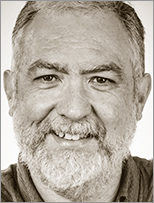Description:
Hosted By: Rachel Roumeliotis
Whether you're building a new architecture, tweaking your Python unicode, or optimizing your Java for performance, there are ways that you can fine-tune your practices to improve your efficiency and quality of work while reducing errors. O'Reilly's first online conference for software architects focuses on these matters. In four hours, we'll take you from line of code to the big picture, including an introduction to microservices and David McKinley's session "Choose Boring Technology" on making broader business decisions.
Hosted by Rachel Roumeliotis, conference chair for OSCON and the O'Reilly Software Architecture, the event is free, interactive (bring your questions), and worth your time.
Choose Boring Technology
Dan McKinley
How do you choose the technology to run your business? The prevailing advice du jour is something like: "use the best tool for the job." This is obviously right, but it is also devoid of meaning in an unfortunate way that lets people define the words "best" and "job" as myopically as they like.
This talk aims to give shape to these nebulous terms. Your job is to keep your company in business. The best tools tend to be the ones that solve the widest array of problems while requiring the least amount of operational overhead. If innovation happens when preparation meets opportunity, I submit that opportunity rarely appears in the form of an unforeseen data loss bug.
Of course, adding technology is sometimes necessary. It's true that shiny new technologies can be useful, and it's true that a mix of technology is healthy. But the world is beset by polyglot programmers and microservice proponents. A framework for thinking about these issues systematically is necessary. That process must consider the organization as a whole, and it must reintroduce constraints that have gone to seed in the era of cloud infrastructure.
Choose boring technology. If you can get past this, you can be exciting in ways you can't imagine.
Optimizing Java Performance with HotSpot
Write Clean Code "Just-In-Time" and Worry Less As a Developer
Douglas Hawkins
HotSpot promises to do wonders for Java developers by identifying hot code and optimizing it "just-in-time." For the most part, HotSpot stays true to its promises. However, it's easier to trust this adaptive performance engine once you understand precisely how the magic works.
In this session led by Douglas Hawkins, we'll help Java developers of all levels better understand what this virtual machine can and cannot do for them. By the end of this talk, developers will be able to use HotSpot to focus on solving critical performance issues with their code. They will also walk away with practical strategies they can use to implement a more efficient and productive development environment.
Unicode Solutions in Python 2 and 3
Luciano Ramalho
This session tackles head-on the most common problems when dealing with Unicode data or any text data that is not limited to ASCII. Each example is presented first with Python 3 code — which is easier to understand — and then with Python 2.7, the version used in most current projects.
Topics covered:
- Understanding character encodings and the encode/decode methods;
- Diagnosing and fixing encoding errors raised by Python;
- Handling text files and standard I/O in GNU/Linux, OSX and Windows;
- Safe comparisons and pattern matching with Unicode;
- Proper sorting of Unicode data
Microservices and You
The Straight Dope
Steven Pousty
You have started to hear about microservices and you want to learn more about what happens when the rubber meets the road. In this talk I will cover the process I went through in constructing https://wwww.flatfluffy.com, a multi-device application for gamified recording of roadkill. While I will briefly cover how I went about the process, I will pay particular attention to how to get started, understanding what microservices ACTUALLY needs, and how you too can be a microservices practitioner. My talk style is informal and interactive so there will be a back and forth to discuss some of your implementation questions. Come in curious, leave with some solid ideas on how to get started on your first microservice architected application.
About Rachel Roumeliotis
Rachel Roumeliotis, a Strategic Content Director at O’Reilly Media, Inc., leads an editorial team that covers a wide variety of programming topics ranging from full-stack, to open source in the enterprise, to emerging programming languages. She is a Programming Chair of OSCON and O'Reilly's Software Architecture Conference. She has been working in technical publishing for 10 years, acquiring content in many areas including mobile programming, UX, computer security, and AI.





